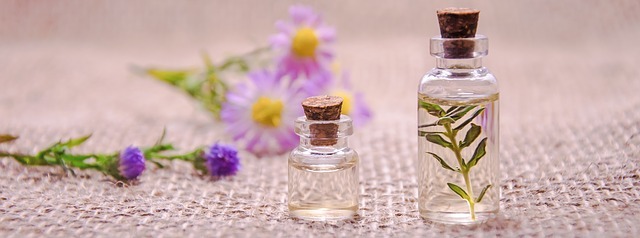
Stress and anxiety can be a trigger for relapse, which is why aiming to achieve a mindful, relaxed state is so important during recovery. In one study published in the Journal of Clinical Nursing, it was found that a 15-minute aromatherapy massage significantly reduced anxiety in study participants, who chose from different essential oils, including lavender, bergamot, and patchouli. There is no doubt that fragrant smells can lift our mood and please our senses, but can they go further than this? Can essential oils/aromatherapy help provide those in recovery with a welcome sense of peace and calm?
Aromatherapy and Cravings
According to studies carried out by RJ Buckle Associates, aromatherapy can help quell cravings and ameliorate withdrawals. Essential oils used in the study included angelica, helichrysum, and lavender. Indeed, studies have long shown that there is a strong link between smells and food cravings, or a desire for alcohol and substances. These studies show that smell can increase a desire for these items, but can also quell cravings, depending on the specific fragrance. Some essential oils, for instance, can promote general well-being, which can help with areas like sleep and general mood. Other research found that using a blend of other essential oils (juniper, rose, and orris) wsa able to reduce benzodiazepine use by 25% per week when participants smelled these oils before going to bed.
Lavender to Fight Stress
People in recovery need to approach the stress associated with substance abuse from a multi-faceted perspective. It is common for people with anxiety to self-medicate or misuse/abuse substances as a way to escape from stress. Natural calming methods can provide an excellent complement to existing treatments. When it comes to essential oils, one of the most studied is lavender. A 2018 study published in Frontiers found that components of lavender, when smelled, could reduce stress and anxiety. To achieve this effect, lavender must be smelled, not just absorbed into the lungs. The study is an important reminder of the connection between our sense of smell and our ability to enter into a more tranquil mood. Other studies have shown that specific oils (including vetiver and rose) have similar anti-anxiety effects.
Ylang Ylang, Lavender, and Bergamot for Greater Joy during Recovery
It is important for those in recovery to find natural ways to experience the sense of joy, and ylang ylang, lavender, and bergamot can help them achieve this aim. In a 2006 study by Korean researchers, it was found that aromatherapy via the inhalation of a blend of lavender, ylang ylang, and bergamot (for a four-week period) lowered levels of stress hormone, cortisol. Ylang ylang is said to help with “cheerfulness, courage, and optimism,” which can make the road to recovery feel a bit less burdensome.
If you are in recovery and you would like to expand your methods of natural relaxation, why not give essential oils a try? There are many ways to enjoy their relaxing or mood lifting effects. One way is by directly smelling your chosen oils. Another is by refusing your chosen oil or oil blends throughout your living space with the help of a diffuser. Whichever method you decide, only rely on therapeutic grade essential oils. These will usually come in dark bottles to preserve their benefits.



1 Comment
I make a mixture of lavender, orange, chamomile & water – use it as a spray in the bedroom before going to sleep. Relaxing!